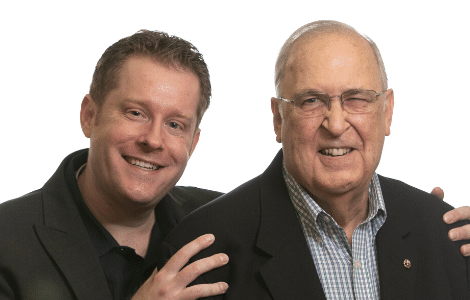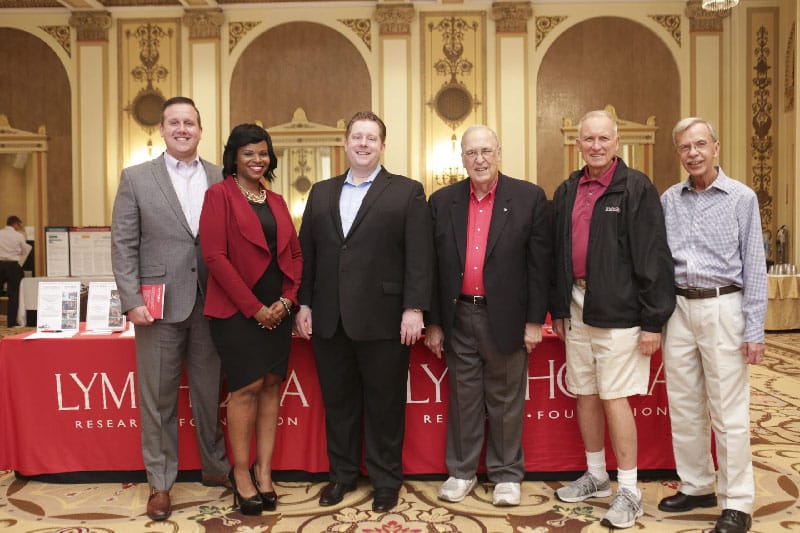Chris, Peripheral T-Cell Lymphoma Care Partner
Chris, Peripheral T-cell Lymphoma Care Partner

In 2007 my dad, Rich was diagnosed with a very rare, very aggressive form of lymphoma, called peripheral T-cell lymphoma (PTCL) unspecified, to which there is still no standard effective treatment to this day.
My family was quite worried but still hopeful. Learning that someone in your family has cancer is always very frightening, however the further we learned the specifics of the type of lymphoma my father had, the scarier it became. PTCL stage IV – the most advanced – meant that his odds of survival were not good (only about 1 in 5 patients live past five years).
During this time we were very focused on my dad’s treatment and attended all doctor visits with him. Even though the decision to enter a life-saving research study was ultimately my dad’s choice, my mom and I were very involved in the decision-making process. One of the things it taught me was no matter what level of care you’re receiving, even if you’re at the world’s best facilities, at the end of the day, you have to be your own best patient advocate. You have to be the one doing everything you can to make sure you are getting the absolute best treatment possible.
You have to be your own best patient advocate. You have to be the one doing everything you can to make sure you are getting the absolute best treatment possible.
During my dad’s doctor’s visits and treatments, he was very sick and his head was in a different place so my mom and I asked most of the questions. We were very aggressive and would inquire about every single option available and took notes on everything. We also recorded all of the doctor’s visits in case we needed to later reference something that was said. There was a lot of information to digest during each visit and the recordings proved to be valuable resources. You wanted to be as proactive as possible. Asking tons of questions helps put you in the driver’s seat.
As my dad’s treatments ended, I took all of the medical reports and records and the recordings from the doctor’s visits and uploaded them to an online file-sharing site that my mom, dad and I could access. Having all of your information in one place is helpful because every new doctor you visit wants to review all the same information including your scans, your blood work, and other medical records. If you have copies of everything, it definitely speeds the process along. In fact, with today’s technology, it’s very easy to store most of this information on your cell phone.
One other big tip is to share your journey with others. Knowing family and friends would want to understand how my dad was doing, I set up a private blog to share everything in one place. That allowed us to keep a greater focus on my dad’s needs. I posted updates, pictures and videos and all of the details related to his diagnosis and treatment. It was a great way to keep folks updated since they could see pictures and videos and, in a very real sense, go through the entire process with us. Additionally, people could post comments on the blog, giving my dad a great amount of support. He could see all the comments from people offering love, prayers, and funny jokes to let him know they were thinking of him.
My family was already close, but this journey definitely helped strengthen our bond. If you can get through life-threatening cancer there’s not much you can’t deal with! That’s why my advice to caregivers is to let others know what you’re going through so they can offer their support.
My advice to caregivers is to let others know what you’re going through so they can offer their support.
Also, don’t forget to keep your sense of humor! During his treatment my dad had crazy, funny wigs he would wear for each new treatment cycle. People got so used to his wigs when he was cured and finished treatment, they were disappointed to see his normal hair. Having a sense of humor during the process can help your family get through a quite difficult, stressful period.

At some point on your journey, I encourage you to get involved with a cancer organization like the Lymphoma Research Foundation. You’ll quickly realize how you are not alone in this journey. Support is all around you. Personally, I became involved after my dad was invited to be part of their inaugural Ambassador Program. LRF found out about my role as a caregiver and asked if I would like to be an Ambassador, too.
Over the last few years, my dad and I have shared our stories through different media outlets including writing articles, doing interviews and speaking at LRF events such as educational programs. (For even more useful, important caregiver tips, check out my “Cancer Bites” article here.)
LRF is passionate about providing support to patients and care partners as well as supporting important research programs. My dad is an example of the power of research because the only real treatment option he had was to go into a research study. Fortunately, the National Institutes of Health/National Cancer Institute had an opening in a study for his exact type of cancer – and this study not only saved his life, but his doctors say it cured him! Almost 6 years after the diagnosis of his very rare, very aggressive blood cancer, the scans are done. No more “remission.” No more “cancer-free.” Just annual blood work and “CURED!”
The truth is the only way we are going to find a cure is through research and getting involved with research organizations any way we can.
Fact is not many people who get what my dad had got to hear the great news we did (yet). Thanks to amazing cancer research that WORKS and amazing medical care, and amazing family & friends…my family has seen firsthand how far cancer exploration can actually go towards saving somebody’s life. The truth is the only way we are going to find a cure is through research and getting involved with research organizations any way we can. My family stands here today as living proof.